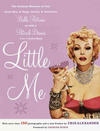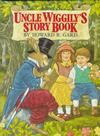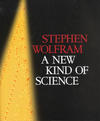Michael Tanner on Patrick Dennis
Interviewed by Gavin J. Grant
 |
|
The late Patrick Dennis ( the pen name for Edward Tanner) was the hugely popular author of Auntie Mame, and a dozen other books. This fall, one of his most hilarious and beloved novels, The Joyous Season, has been brought back into print. We interviewed Dennis/Tanner's son, Michael Tanner, who was the inspiration for Kerry in The Joyous Season. |
 |
 |
 |
 |
BookSense.com: Did you identify with Kerry, the young boy whose parents are on the edge of divorce in Patrick Dennis' The Joyous Season?
Michael Tanner: Identify? C'est moi! In all modesty, I had a lot to do with the book. Dad was amused by the slang I was using at age 10. He came to me one day and said, "I want you to write me a list of all the things you say, all the expressions and everything." I also gave him the algebra problem that, in Chapter Six necessitates a call to the Institute for Advanced Studies at Princeton.
The book was a tremendous consolation to us. Betsy calls it "a very sweet gift." I adored my father and took it very hard when he left.
Did you live in New York at the time The Joyous Season was written?
Yes. My mother Louise and Betsy and I were living in the townhouse at 101 East 91st Street, and Dad was in a gorgeous apartment overlooking Central Park at 930 Fifth Avenue. He took us to many of the places mentioned in the book: the Lipizzaner Stallions, Broadway shows, and lots of restaurants (Passy, Voisin, the Orangerie). He was a regular at Passy, and would insist we be served wine, which made the maitre d' sick with fear. The South American restaurant in Chapter Eight is La Fonda del Sol, long since defunct like all the rest of the places.
I remember one date when I had my hair cut in the Fifth Avenue apartment by his personal barber, then off in a London Town Car to lunch with Nancy Walker's daughter Miranda, then off to see Burt Lahr in "Foxy." It was all very posh, but of course Betsy and I just wanted him to come home.
Did you know anyone like Kerry's friendly (but not particularly bright, and usually tipsy) uncle, H.A?
H.A. was based on my mother's cousin Howard. He was tall, aristocratic, gorgeous, and in my father's words, "barely had the brains to dress himself." He was always extending these halfhearted invitations to Betsy and me to come up and visit him at his place in Stonington, CT. Chapter One is Dad's meditation on what such an experience might have been like for us. In addition to the four of us in the nuclear family, many of the characters in the book were based on actual people. Lulu was our nurse Corry Salley, and the grandmothers were more or less our grandmothers Florence Tanner and Helen Stickney. The rivals, Sam and Dorian, were made up.
When you were a child, was your father writing all the time?
Dad always said: "I write fast or not at all." There were long periods of hibernation when he would just watch a lot of television, on the order of "Heavyweight Wrestling from Bridgeport" and the soap opera "Young Doctor Malone." Then he would spring into action and bang out a novel in 90 days with very little revision.
Among my fondest memories is the sound of the typewriters going all day, then overhearing Mom and Dad reading their stuff to each other, cracking each other up.
Did you see much of him?
We saw a lot of him until my parents separated in 1962, when I was eight and my sister Betsy was five. Then it was weekend dates and outings very much as in the book. In 1965 he moved to Mexico City and of course we saw a lot less of him then. My parents never divorced. When he was diagnosed with pancreatic cancer in 1976, he moved back home and died in my mother's bed.
What did your mother write?
Here Today…(1959), a collection of biographies of people who were famous in the 1930s. Miss Bannister's Girls (1962) a novel based on the Chapin School in New York. All the Things We Were (1966) a popular history of the '30s. Reggie and Nilma (1969), Mom's divorce book told from Betsy's point of view, in which Corry (Lulu, Nilma) plays a major role. Dr. IRT (1975) a juvenile set in the New York City subway system.
The Joyous Season has been out of print for years, yet it has many fans. Why do you think it is so popular?
Because, after all these years, the narrative voice is still very funny. Kerry is a typical Patrick Dennis narrator, as in Auntie Mame and Genius: a thoroughly decent young man with perfect common sense, observing the outlandish. The device of mocking the foibles and social rites of adults through the voice of a precocious child works very well. Kerry is dealing with the pain of the breakup, which lends poignancy to the comedy. It's very touching at the end of Chapter Three when Kerry and Missy, these sophisticated kids, cry themselves to sleep. The New York City setting is attractive. And the central theme -- that adults underestimate and misinterpret children -- is as true as ever.
Is The Joyous Season your favorite of your father's books?
It's certainly the one I'm emotionally closest to. The ending, however, is somewhat mechanical, and was, in fact, partially written by his editor Julian Muller.
Of course, I love the Auntie Mame books, and Little Me (being reissued this fall) is a work of genius -- completely original.
Did your father read to you when you were a child?
 Uncle Wiggily's Airship is about all I can remember, but I'm sure he did.
Uncle Wiggily's Airship is about all I can remember, but I'm sure he did.
Do you have children? Have you read them The Joyous Season?
Henry is five, Katherine is one. Henry loves books, but seems extremely disinclined to embark upon Harry Potter and the Sorcerer's Stone, a 500-page book with no pictures. Novels are so visually monotonous and unappealing. We'll see about The Joyous Season. Katherine enjoys Goodnight Moon and Puppy Says 1-2-3.
What are you reading?
 A New Kind of Science by Stephen Wolfram. The cat is making some claims!
A New Kind of Science by Stephen Wolfram. The cat is making some claims!
What books would you always recommend?
To me, the mark of a truly cultivated person is the ability to laugh out loud at the written word. You hardly ever see that anymore.
The king of my father's kind of writing is P.G. Wodehouse, particularly The Code of the Woosters. His world is pure.
 Also: George Bernard Shaw's Prefaces. I admire writers who can bring down the hammer. As Shaw said, "If you can say a thing with one stroke, unanswerably you have style." When I was floundering in the Arts in my late 20s, the Man and Superman preface inspired me to become a doctor, which has worked out well for me. The preface to Androcles and the Lion is the best thing ever written about Jesus and what he did and did not say. Portnoy's Complaint by Philip Roth, and anything written by Tom Wolfe.
Also: George Bernard Shaw's Prefaces. I admire writers who can bring down the hammer. As Shaw said, "If you can say a thing with one stroke, unanswerably you have style." When I was floundering in the Arts in my late 20s, the Man and Superman preface inspired me to become a doctor, which has worked out well for me. The preface to Androcles and the Lion is the best thing ever written about Jesus and what he did and did not say. Portnoy's Complaint by Philip Roth, and anything written by Tom Wolfe.
